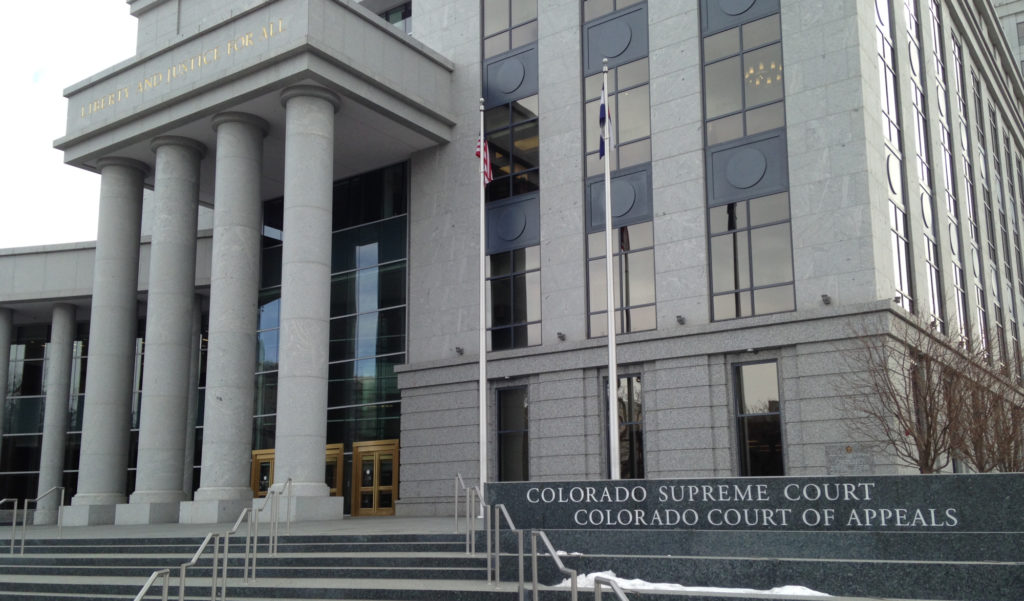By Jeffrey A. Roberts
CFOIC Executive Director
Amid multiple probes into allegations of employee misconduct, the Colorado Judicial Department is considering a new rule that would make records of many completed personnel investigations accessible to the public.
Members of the judicial branch’s Public Access Committee on Friday discussed aligning the department’s policy on disclosure of personnel records more closely with the Colorado Open Records Act (CORA), which covers all agencies of state government except the judiciary. If approved as drafted, the amended policy would open records on civil, administrative or personnel investigations that are “closed because no further investigation, discipline, or Judicial Branch or other agency response is warranted.”
Certain information could be redacted before disclosure, such as the names and financial data of complainants or witnesses. Records of ongoing investigations would still be withheld as well as records of sexual harassment complaints and investigations. Investigations referred to the Commission on Judicial Discipline are governed by a different set of rules.

“It’s the goal of increasing transparency, generally, because there’s been so much cynicism about judiciary trying to hide things,” Colorado Supreme Court Justice William Hood said during the Public Access Committee meeting. “It’s part of a larger undertaking to try and promote transparency where we can.”
According to The Denver Gazette, at least six investigations have been launched in response to misconduct allegations within the judicial branch “that included a quid-pro-quo deal to a former high-ranking official who threatened a sex-discrimination lawsuit that would reveal it all.” In November, the department awarded contracts to firms looking into sexual harassment, gender discrimination and the $2.5 million deal given to former department Chief of Staff Mindy Masias in 2019. Other investigations were started by the state auditor, the Office of Attorney Regulation Counsel, the Commission on Judicial Discipline and the FBI.
Under the current version of P.A.I.R.R. Rule 2, the policy governing access to the judicial branch’s administrative records, internal investigation files on judicial branch employees are not publicly available, except for the outcome of an investigation. When the Colorado Supreme Court adopted the policy in 2015, the Colorado Freedom of Information Coalition raised concerns that files on judicial branch employees were being treated “very differently” than the records of other government employees. In the legislature, now-former state Rep. Polly Lawrence tried unsuccessfully a few times to make the records of judicial employees subject to CORA.
Under CORA, personnel files examining the conduct of public employees are presumed to be open for public inspection, except for portions that contain highly personal or private information unrelated to work performance. To be classified as closed “personnel file” information, court rulings have determined, the information must be “of the same general nature” as an employee’s home address, phone number and personal financial information.
Like the proposed new judicial branch rule, CORA also specifically opens records of “a civil or administrative investigation that is closed because no further investigation, discipline, or other agency response is warranted.” Records of sexual harassment complaints and investigations are not available under CORA, except to “the person in interest.”
At Friday’s meeting, Jim O’Connor of the state public defender’s office said he’s concerned the proposed rule change “adds a layer of complexity” to how internal investigations are performed and how confidential information provided by witnesses and complainants is protected. “I don’t think CORA, as designed, has thought much about this particular question,” he said.
“I don’t know whether that’s so or not,” responded Colorado Court of Appeals Judge Jerry Jones, who chairs the Public Access Committee. “I think what CORA reflects is a recognition that we are not private employers. We are the public, who are paid by the public, and there is a public interest in knowing about the public’s business … Here, there is a very substantial public interest in knowing what’s going on with those who are paid by tax dollars.”
Said O’Connor, “There is a balance that can be struck on this particular topic of civil and administrative investigations that doesn’t open the door to all the documentation and everything else.”
The Public Access Committee plans to survey judicial branch department heads about the proposed new rule before discussing it again and possibly making a recommendation to the Colorado Supreme Court.
Follow the Colorado Freedom of Information Coalition on Twitter @CoFOIC. Like CFOIC’s Facebook page. Do you appreciate the information and resources provided by CFOIC? Please consider making a tax-deductible donation.




